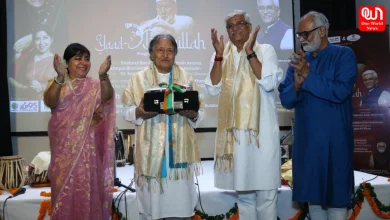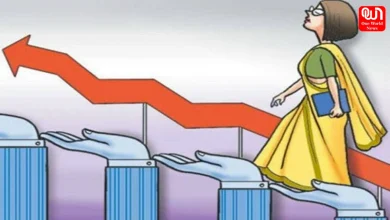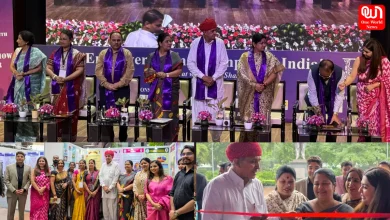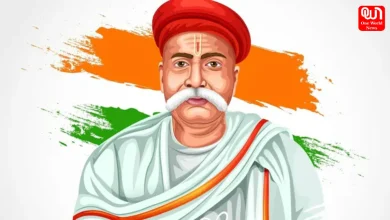Exclusive: Priti Patkar, a Prerana For All
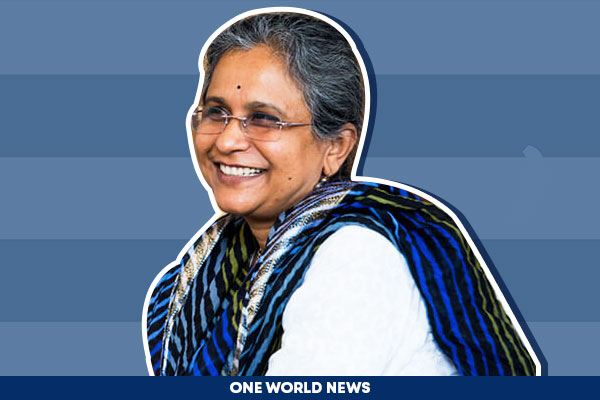
Exclusive talks with Priti Patkar jisne samjha sex workers ka dard
Have you ever thought about the life of a prostitute, the life of their children, and their health and misery?
Prerana is an organisation, which stands apart from the crowd because it is a name that has done exceptional work in the red-light districts of Mumbai. Priti Patkar, the face behind the organisation, began this organisation to protect children vulnerable to commercial sexual exploitation and trafficking. One World News had the opportunity to speak to this inspirational woman and learn much more about Priti Patkar work:
Tell us something about your work?
In association with Riddhi Siddhi Charitable Trust – Mira Road, Priti Patkar of Prerna Association held an insightful seminar on the ‘Juvenile Justice (Care and Protection of Children) Act, 2015’ for GRP personnel today, covering aspects of safety, equality and children's rights. pic.twitter.com/HKkIwT9pF7
— GRP Mumbai (@grpmumbai) May 18, 2022
Our entire work is focused on inter-generational trafficking in the sex stream. So, we ensure that the children of the sex workers are not forced into this. In the three areas we work, we have been able to stop it to an extent, and soon would be a time when we would say we have done it completely, by giving them education, protection, empowering them with their rights, freedom to choose and so on. We wanted to demonstrate a model and socialize the issue as an organization.
We started the work when people thought that women in prostitution would die as prostitutes. However, we had the vision that this scenario could be changed.
We demonstrated and ensured that this excluded community is included in the mainstream development we constantly talk about. To an extent, we have achieved it. It was more of a movement and less of making an institution.
When you started working with women in the red light area, what were the difficulties?
In the red light area, obviously, there was a trust deficit. They did not believe that we were here to stay. In contrast, civil society thought that by working towards the betterment of the children of prostitutes, we encourage women to be more frivolous and leave their responsibility as a mother. They also believed that if the women could not take care of their children, they should not give birth to them. The wish of these children was never considered.
Did you experience any pressure from your family when you started to work in this area?
I am fortunate that I never had a phase where my family went against my wish to rehabilitate prostitutes and their children. My husband understands my work, and everybody has always appreciated it.
What has been the government’s role in your 29 years journey?
Prerana collaborated with Balaram Tuberculosis Hospital to organize a TB Screening Camp under an awareness campaign by the National Tuberculosis Elimination Program (NTEP). pic.twitter.com/8xVatF9GVU
— Prerana (@PreranaATC) April 12, 2022
The government initially was indifferent and did not want to do much. Still, since 2000, we have seen some response, be it trying to improvise implementation of the law or trying to formulate the rehabilitation policies for these women. We ensure that whenever some amendments are made to the law regarding children, the need for these children of prostitutes is also reflected.
Therefore, there has been a positive shift as they want to participate voluntarily and are ready to listen. However, there is still a long way to go.
So do you also hold workshops wherein children of prostitutes meet children of another world?
The government initially was indifferent and did not want to do much. Still, since 2000, we have seen some response, be it trying to improvise implementation of the law or trying to formulate the rehabilitation policies for these women. We ensure that whenever some amendments are made to the law regarding children, the need for these children of prostitutes is also reflected.
Meeting with children 2 plan #summercamp.They co-decided the dates, actvities,food,prizes & more.@PreranaATC team ensured that children had equal opportunity 2 participate in decision making. #childparticipation #righttobeheard #meangingfulparticipation #voluntaryparticipation pic.twitter.com/5ZdRig9pmD
— Priti Patkar (@priti_patkar) April 25, 2022
We do have workshops wherein we focus on getting both worlds together. This world of red-light areas and the other side always wants to stay away from it, so our attempt is to make the children see life outside.
Which sector of the society has put its foot forward to make your workshops a success?
Surprisingly, corporate is amazingly involved in this sector. There was a time when they would not want to utter the word ‘Prostitute,’ but now they are extending a big hand in our initiative.
Some women say that they entered this area of their own will. How do you think they can be dealt with?
The day they realize they have a right to say no, the acceptance would slowly change to a vocal expression of ‘what happened to me is wrong.
To what extent does Bollywood show the real face of these red-light areas?
Some of them are very imaginary, and some are very bold. Movie-like Mandi, Chandni Bar by Madhur Bhandarkar, and so on show the real world.
What is an alarming issue for you when looking at prostitution from a global perspective?
What is currently becoming an issue is that they all are going underground; getting dispersed and decentralized, and new forms of prostitution are coming up. Today, women are sold in beauty parlours, massage parlours, and even in the entertainment industry. Therefore, what you see upfront is a legitimate business where we think women should be but behind the veil is the real world wherein women are vulnerable and exploited for commercial sex purposes.
In addition, we are still not very vocal and forceful about how we would tackle human trafficking for commercial exploitation. People think that maybe she was a victim of trafficking but later on accepted it. However, the question is, when did the forceful act change into a choice.
Do you think prostitution should be legalised?
India is not prepared to legalising prostitution. We should first sit down and clearly define what legalisation would actually mean. What do we have to ask, and the women would get through this? Therefore, once there is clarity in this region, we can go ahead with it. Legalization cannot be an answer to exploitation.
What has been a difficult moment for you?
Trying to make people understand that they should not support the legalisation of any form of exploitation.
What are the present challenges for you?
The trials of such cases are taking a lot of time, and victim-witness protection should be placed. These two are something very challenging in the present scenario.




